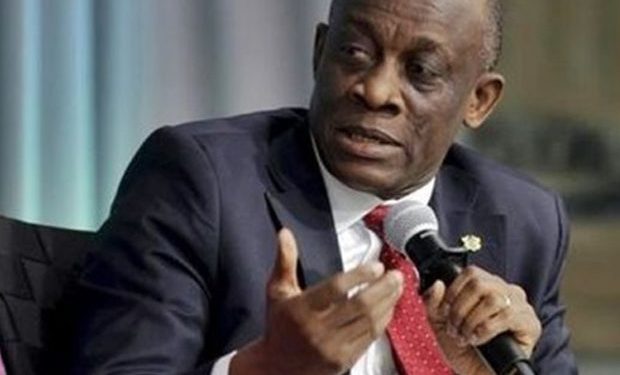Seth Terkper makes strong argument against use of primary balance as fiscal anchor
“Let’s focus on fiscal balance and not on primary balance if we want to take the economy out of the current challenges,”
- Advertisement -
Former Finance Chief, Seth Terkper, has made a strong case against the use of primary balance instead of fiscal balance as the country’s fiscal anchor.
According to Mr Terkper, the use of primary balance as a fiscal anchor both in the IMF programme and the 2024 budget, defeats the country’s objectives of reducing its debt stock and paying arrears.
- Advertisement -
“Using primary balance means no emphasis on fiscal balance as well as no emphasis on reducing debt and arrears which are the main headaches of the country,” he remarked speaking during the X Space discussion with NorvanReports and the Economic Governance Platform on the topic “Unraveling the Facts and Numbers Behind the 2024 Budget” on Thursday.
- Advertisement -
“Let’s focus on fiscal balance and not on primary balance if we want to take the economy out of the current challenges,” he added.


Mr Terkper further argued that, Ghana should set more ambitious fiscal targets than the IMF Program requires with these fiscal targets being; (a) Overall Fiscal Balances (commitment and cash bases) targets; (b) shift to semi-accrual accounting to account for arrears and other liabilities; and (c) a debt repayment or amortization methods.
Setting these fiscal targets, he argued, are necessary since the economy is very fiscally challenged, with huge arrears, and has defaulted in meeting debt commitments, adding that the primary balance shows an optimistic (positive) path to meeting its commitments under the IMF programme.
- Advertisement -
The main differences between the Primary and Fiscal Balances are interest payment, arrears (routine and exceptional), and debt repayment or amortization. Primary Balance is Total Revenue less Total Non-Interest Expenditure.
Speaking further during the X Space discussion and touching on the country’s revenue mobilisation efforts, Mr Terkper noted the country’s tax revenue has remained stagnant since 2013 and has not been able to go beyond its 2015 peak.
This is despite, the expansion of the Ghanaian economy and increased tax revenues.
Mr Terkper noted that the highest recorded levels of total revenue, domestic revenue and tax revenue in 2015 were 17.8%, 16.3% and 13.14 respectively as against the recorded 16.2%, 15.9% and 13% for total revenue, domestic revenue and tax revenue respectively for 2021 on the back of inflows due to the Covid pandemic.
This, he primarily attributed to stalled revenue reforms to be implemented by the Ghana Revenue Authority (GRA) to boost efficiency in tax revenue mobilisation efforts.
According to him, a re-engineering of tax revenue reforms are needed to increase the country’s tax revenue share to GDP.
Measures aimed at re-engineering the country’s tax revenues, he noted are present in the current IMF programme.
Source:norvanreports
- Advertisement -


